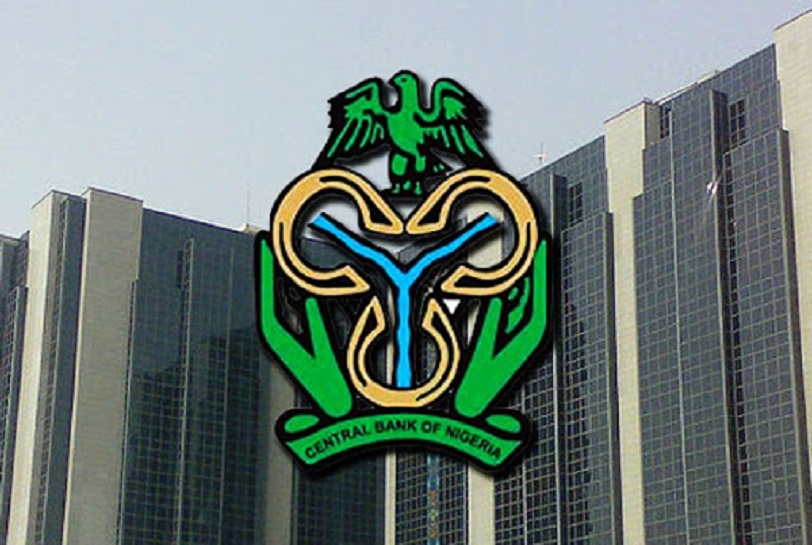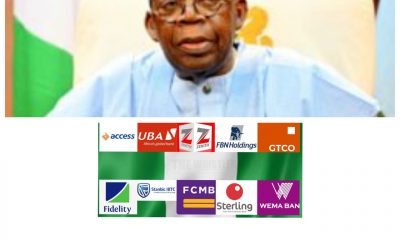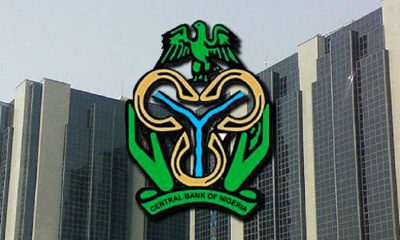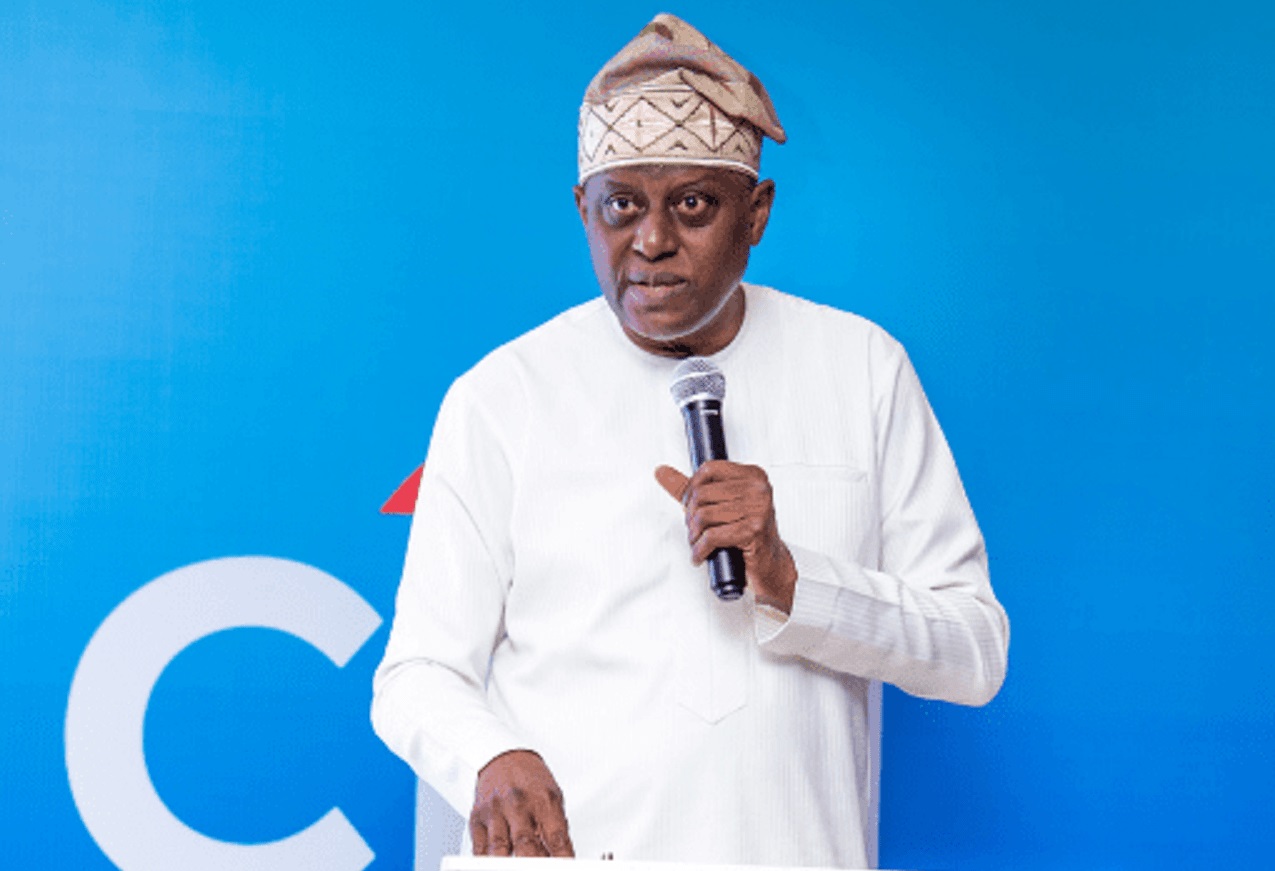Banking
SERAP Rejects Banks’ Request for Social Media Handles for KYC

By Adedapo Adesanya
The Socio-Economic Rights and Accountability Project (SERAP) has urged Mr Folashodun Shonubi, the acting Governor of the Central Bank of Nigeria (CBN), to remove the request for customers’ social media handles for know your customer (KYC) by banks.
SERAP also urged him to “withdraw the Circular number FPR/DIR/PUB/CIR/007/076 of 20 June 2023 mandating banks and other financial institutions to implement and comply with the mandatory unlawful provisions on customers’ social media handles in the CBN Regulations.”
According to Section 6(a)(iv) of the CBN Regulations, banks and other financial institutions “shall identify their customer and obtain information on the social media handle of the customer.” Section 6(b)(iii) contains a similar provision.
In the letter dated June 24, 2023, and signed by SERAP deputy director, Mr Kolawole Oluwadare, the organisation said: “The CBN Regulations and directive to banks to obtain details of customers’ social media address violate Nigerians’ rights to freedom of expression and privacy. It is inconsistent and incompatible with the rule of law.”
SERAP said, “The CBN ought to contribute to the advancement of respect for the rule of law and human rights in the discharge of its statutory functions and not undermine or violate these fundamental legal requirements and standards.”
According to SERAP, “The purported mandatory requirement would inhibit Nigerians from freely exercising their human rights online. If obtained, such information may also be misused for political and other unlawful purposes.”
The letter read in part: “We would be grateful if the recommended measures are taken within 3 days of the receipt and/or publication of this letter. If we have not heard from you by then, SERAP shall take all appropriate legal actions to compel you and the CBN to comply with our request in the public interest.
“The mandatory requirement of social media handles or addresses of customers does not serve any legitimate aim. Such information may be used to unjustifiably or arbitrarily to restrict the rights to freedom of expression and privacy.
“SERAP is gravely concerned that the CBN Regulations and directive to banks and other financial institutions would impermissibly restrict the constitutional and international rights to freedom of expression, privacy and victims’ right to justice and effective remedies.
“Requiring social media handles or addresses of customers as a means of identification would have a disproportionate chilling effect on the effective enjoyment by Nigerians of their rights to freedom of expression and privacy online.
“The CBN bears the burden of justifying any restriction on people’s freedom of expression and privacy. Under the Nigerian Constitution 1999 [as amended] and human rights treaties to which the country is a state party, any restrictions on these rights must be applied strictly so that the rights are not put in jeopardy.
“There are other means of identification such as passport, driver’s licence, Bank Verification Number (BVN), and Tax Identification Number (TIN), which banks and other financial institutions already require their customers to provide.
“The additional requirement of obtaining details of a customer’s social media handle or address fails to meet the requirements of legality, necessity, and proportionality.
“The requirement of necessity implies an assessment of the proportionality of the grounds, with the aim of ensuring that the excuse of ‘regulations on customer due diligence’ is not used as a pretext to unduly intrude upon the rights to freedom of expression and privacy.
“The CBN Regulation does not demonstrate how the use of social media handle or address as a means of identification would serve to improve banks and other financial institutions’ ability to implement and comply with the laws and regulations relating to customer due diligence.
“The Directive by the CBN, which does not in any event carry the force of law, also fails to provide any explanation as to how social media handles or addresses can facilitate compliance with regulations relating to customer due diligence.
“Obtaining the details of customers’ social media handles or addresses would unduly interfere with the rights to freedom of expression and privacy. It would also be disproportionate to any purported legitimate aim that the CBN seeks to achieve.
“The facts that there are sufficient means of identification for CBN, banks and other financial institutions to rely on to meet the requirement of Know Your Customer also heighten concerns of overreach, and confer far-reaching discretion on banks and financial institutions.
“Obtaining information on customers’ social media handles or addresses as means of identification is therefore more intrusive than necessary.
“The cumulative effect of any attempt to access details of customers’ social media handles or addresses would be to undermine the letter, substance and spirit of the rights to freedom of expression and privacy of Nigerians.
“The effective enjoyment of these fundamental rights constitutes a fundamental pillar for building a democratic society and strengthening democracy.
“The CBN fails to show how details of customers’ social media handles or addresses would assist banks and other financial institutions to effectively implement and comply with the laws and regulations relating to customer due diligence.
“Human rights, the rule of law and democracy are interlinked and mutually reinforcing and central to the universal and indivisible core values and principles of the United Nations, the African Union and the Economic Community of West African States to which Nigeria belongs.
“The CBN is bound to respect the constitutional and international human rights of Nigerians including the rights to freedom of expression and privacy.
“Under the principle of pacta sunt servanda and general principles governing the law of treaties, the CBN is also bound to uphold and apply in the discharge of its statutory functions the human rights treaties to which Nigeria is a state party.
“Indeed, under international human rights law, all public or governmental institutions including the CBN are in a position to engage the responsibility of the state.
“The positive obligations on Nigeria to ensure the rights to freedom of expression and privacy will only be fully discharged if individuals are protected against violations by institutions like the CBN.
“The Nigerian Constitution guarantees in Section 39 the right to freedom of expression and in Section 37, the right to privacy.
“Article 19 of the International Covenant on Civil and Political Rights and Article 9 of the African Charter on Human and Peoples’ Rights also guarantee the right to freedom of expression. Article 17 of the Covenant also guarantees the right to privacy.
“Freedom of expression and opinion are indispensable conditions for the advancement of any person or society, as the free exercise of the right facilitates the evolution and exchange of opinions, in turn enabling principles of transparency and accountability crucial for the promotion and protection of human rights.
“While under certain narrow circumstances, a State may restrict the right to freedom of expression, any such restrictions must be strictly limited and meet the conditions of legality (i.e. be “provided by law”), legitimate purpose, necessity, and proportionality. The CBN Regulations mandating social media handle or address as a form of identification for customers fail to meet these legal requirements.
“In particular, Article 19(1) of the Covenant establishes the right to freedom of opinion without interference. Article 19(2) establishes Nigeria’s obligations to respect and ensure ‘the right to freedom of expression,’ which includes the freedom to seek, receive and impart information and ideas of all kinds, regardless of frontiers.
“Under article 19(3), restrictions on the right to freedom of expression must be ‘provided by law’, and necessary ‘for respect of the rights or reputations of others’ or ‘for the protection of national security or of public order (ordre public), or of public health and morals.
“The principles of legality, necessity, and proportionality, apply to the right to privacy in the same manner as they do to freedom of expression and other fundamental freedoms.
“Restrictions to the rights to freedom of expression and privacy that do not comply with the elements of legality, legitimate purpose, and necessity and proportionality shall be deemed unlawful.”
Banking
Public Offer: Sterling Holdco Allots 13.812 billion Shares to 18,276 Shareholders

By Aduragbemi Omiyale
Sterling Financial Holdings Company Plc has allotted shares from its public offer of 2025 to investors with valid applications.
The allotment follows the earlier receipt of final approval from the Central Bank of Nigeria (CBN) and the recent clearance by the Securities and Exchange Commission (SEC).
In September 2025, the financial institution offered for sale about 12,581,000,000 ordinary shares of 50 kobo each at N7.00 per share in public offer.
However, the exercise received wide participation from the investing public, with the company getting 18,280 applications for 16,839,524,401 ordinary shares valued at approximately N117.88 billion.
Following a thorough verification process, valid applications were received from 18,276 shareholders for a total of 13,812,239,000 ordinary shares, representing a subscription level of 109.79 per cent and reflecting sustained confidence in Sterling Holdco’s strategic direction, governance, and long-term growth prospects.
The firm approached the capital market for additional funds for the recapitalisation of its two flagship subsidiaries, Sterling Bank and The Alternative Bank.
The capital injection will support the commencement of full operations and contribute to the group’s revenue diversification objectives.
In line with the guidelines set out in the offer prospectus, Sterling Holdco confirmed that all valid applications will be allotted in full. Every investor who complied with the terms of the offer will receive all the shares for which they applied.
A very small number of applications were not processed or were partially rejected due to non-compliance with the offer terms, including duplicate payments and failure to meet the minimum subscription requirement of 1,000 units or its multiples, as stipulated in the offer documents.
The group ensures a seamless post-offer process, with refunds for excess or rejected applications, along with applicable interest, to be remitted via Real Time Gross Settlement or NIBSS Electronic Funds Transfer directly to the bank accounts detailed in the application forms.
Simultaneously, the electronic allotment of shares has be credited to successful shareholders’ accounts with the Central Securities Clearing System (CSCS) on February 17, and for applicants who do not currently have CSCS accounts, their allotted shares will be temporarily held in a registrar-managed pool account pending the submission of their completed account opening documentation to Pace Registrars Limited, after which the shares will be transferred to their personal CSCS accounts.
Banking
CBN Governor Seeks Coordinated Digital Payment Reforms

By Modupe Gbadeyanka
To drive inclusive growth, strengthen financial stability, and deepen global financial integration across developing economies, there must be coordinated reforms in digital cross-border payments.
This was the submission of the Governor of the Central Bank of Nigeria (CBN), Mr Olayemi Cardoso, at the G‑24 Technical Group Meetings in Abuja on Thursday, February 19, 2026.
According to him, high remittance costs, settlement delays, fragmented systems, and heavy compliance burdens still limit the participation of households and Micro, Small and Medium Enterprises (MSMEs) in global trade.
The central banker emphasised that efficient payment systems are essential for economic inclusion, highlighting that global remittance corridors still incur average costs above 6 per cent, with settlement delays of several days, excluding millions from modern economic activity.
Mr Cardoso cautioned that while digital payments present significant opportunities, they also carry risks such as currency substitution, weakened monetary transmission, increased FX volatility, capital-flow pressures, and regulatory fragmentation.
The G-24 TGM 2026, themed Mobilising finance for sustainable, inclusive, and job-rich transformation, convened global financial stakeholders to advance the modernisation of finance in support of emerging and developing economies.
The CBN chief reaffirmed Nigeria’s commitment to working with G-24 members, the IMF, the World Bank Group, and other partners to build a more inclusive, resilient, and development-oriented global financial architecture.
“We have strengthened our AML/CFT frameworks in line with FATF guidelines, requiring strict dual-screening of cross-border transactions to mitigate risks.
“To deepen regional integration, the CBN introduced simplified KYC/AML requirements for low-value cross-border transactions to encourage broader participation in PAPSS, easing processes for Nigerian SMEs and enabling faster intra-African trade payments.
“We have also embraced fintech innovation through our Regulatory Sandbox, allowing payment-focused fintechs to test secure, instant cross-border solutions under close CBN supervision,” he disclosed.

Banking
Unity Bank, Providus Bank Merger Awaits Final Court Approval

By Modupe Gbadeyanka
The merger and business combination between Unity Bank Plc and Providus Bank Limited remains firmly on course, a statement from one of the parties disclosed.
According to Unity Bank, there is no iota of truth in reports in certain sections of the media suggesting that the merger process had stalled, as the transaction remains firmly on track.
It was disclosed that the necessary regulatory steps have been completed, but only a few other steps to finalise the transaction, especially the final court sanction.
There had been speculations that both lenders may not meet the new minimum capital requirement of the Central Bank of Nigeria (CBN) before the March 31, 2026, deadline.
However, it was noted that the combined capital base of Unity Bank and Providus Bank exceeds N200 billion, which is the minimum requirement to retain a national banking licence under the CBN’s recapitalisation framework.
When completed, the Unity-Providus merger is expected to deliver a stronger, more competitive, and customer-centric financial institution — one with the scale, innovation, and reach to redefine the retail and SME banking landscape in Nigeria.
“The merger with Providus Bank significantly enhances our capital base, operational capacity, and strategic positioning.
“We are confident that the combined institution will be better equipped to support economic growth and deliver innovative financial solutions across Nigeria,” the chief executive of Unity Bank, Mr Ebenezer Kolawole, stated.
Recall that a few months ago, shareholders authorised the merger between the two entities at Court-Ordered Meetings. They also adopted the scheme of merger at their respective Extraordinary General Meetings (EGMs) in September 2025,
The central bank also backed the merger, with a pivotal financial accommodation to support the transaction. The merger also received a further boost with a “no objection” nod from the Securities and Exchange Commission (SEC).
The regulatory approvals form part of broader efforts to strengthen the resilience of Nigeria’s banking system, reinforce capital adequacy across the sector, and mitigate potential systemic risks.
The development positions the combined entity among the 21 banks that have satisfied the apex bank’s new capital threshold for national banking operations.
-

 Feature/OPED6 years ago
Feature/OPED6 years agoDavos was Different this year
-
Travel/Tourism10 years ago
Lagos Seals Western Lodge Hotel In Ikorodu
-

 Showbiz3 years ago
Showbiz3 years agoEstranged Lover Releases Videos of Empress Njamah Bathing
-

 Banking8 years ago
Banking8 years agoSort Codes of GTBank Branches in Nigeria
-

 Economy3 years ago
Economy3 years agoSubsidy Removal: CNG at N130 Per Litre Cheaper Than Petrol—IPMAN
-

 Banking3 years ago
Banking3 years agoSort Codes of UBA Branches in Nigeria
-

 Banking3 years ago
Banking3 years agoFirst Bank Announces Planned Downtime
-

 Sports3 years ago
Sports3 years agoHighest Paid Nigerian Footballer – How Much Do Nigerian Footballers Earn























